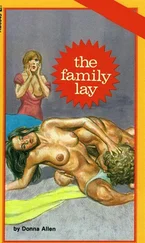“You’re never temperate,” Ellen says. “You’re a zealot. Please don’t be a zealot when we get to school. I’m the one who has to go there every day. Can’t you just drop me off and then go home?”
“No.”
“Mum, please !”
“No, Ellen. If this George boy has been expelled for stealing your coat and he didn’t do it, we need to sort it out.”
“I thought you were determined to do nothing ever again.”
“Yes—apart from have fun. I’m going to enjoy getting George unexpelled.” It will take my mind off the horrible phone calls.
“It won’t work,” says Ellen. “Don’t you think I’ve tried? No one wants to listen.”
“Well, they’re going to listen to me whether they want to or not. I suspect they don’t believe you and think you’re covering for George: he stole your coat, but he’s your best friend, so you’re trying to get him off the hook. To be fair to them . . . a coat is a pretty unusual present.”
“I’m an unusual person. It’s one of my main selling points.”
“You are and it is. But it sounds as if George’s mum is even more unusual. The professor. Before the lunatic called, you were saying she wouldn’t have bought George a new coat—why not?”
“I don’t know! Ask her.”
“Why are you so angry with me, Ellen?”
“I’m not angry with you. I just . . .” Her voice cracks. She turns her face away. I can hear her crying, or trying hard not to. I fantasize about smashing my car into the face of whoever has made her so miserable. Is it George’s mother? Mrs. Griffiths, the head? The more the merrier. If they’ve made my daughter cry, I’ll mow them all down—in my dreams, at least.
“It’s okay, El. If yelling at me makes you feel better, I don’t mind. I won’t take it personally.”
“George was scared. He was actually frightened! I’ve never seen anybody look like that apart from in a film, when a murderer or a monster’s chasing them.”
Great. Thanks to my aversion to any and all censorship, my daughter knows what pure terror looks like. If Alex and I hadn’t let her watch so many 18-certificate films, she might still have her coat, and I might be at home, easing myself into another day of pleasurable inactivity. Yesterday I tried meditation for the first time. I’m not sure how well it went. I lay on the chaise longue in the garden room for nearly an hour and a half, but the silent mantra repeating itself in my head was not a peaceful one. The word “fuck” kept cropping up: fuck your two-page treatments, fuck your series bibles, fuck your show-running and your brainstorming, fuck your greenlights and your BAFTAs—up the arse, actually. Fuck the BBC, fuck ITV, fuck Sky . . .
Something went wrong, clearly, even though I followed the instructions in my meditation book to the letter. It said, “Don’t put any energy into thinking, but if thoughts come into your mind, let them come. Observe them from a distance as they drift in and out. Don’t push them away.” The book doesn’t specify what to do if only a load of fucks turn up.
And now here I am, the very next day, driving to school to cause trouble. Maybe yelling at some teachers for half an hour or so will purge me of all my repressed anger, and my meditations thereafter will be obscenity-free. My life will be a smooth-surfaced pool of tranquility.
“I gave him my coat thinking the worst that would happen was you’d moan at me for losing it,” says Ellen. “If I’d known he’d get expelled, I wouldn’t have given it to him. And now I’ll never see him again.”
“Yes, you will.”
“I won’t. You don’t understand.”
“None of this is your fault, El. You did a kind thing. But . . . George wasn’t scared of going home with a different coat?”
“No. Mine was black and padded; his was a black duffel coat. He said his mum wouldn’t notice the difference.”
“And his dad? Does he have a dad living with him?”
“Yeah. His dad would notice, he said, but there’s no way he’d say anything.”
“Right. So the dad’s scared of the mum too?”
“I don’t know. George didn’t say.”
“Well, he must be, mustn’t he? Unless George is the one he’s afraid of. Is George scary?”
“George is the least scary person in the world. George is just . . . amazing.” Ellen sighs.
“It’s interesting,” I say. “A mother who would go ballistic if her son told her he’d lost his coat, but who, at the same time, doesn’t notice if he comes home with someone else’s.”
“She’s a weirdo.”
“What else do you know about her? What’s she a professor of?”
“Assyriology. Which has nothing to do with Syria.”
“I know.” I didn’t, but I see no need to admit to my ignorance. I bet Professor Donbavand doesn’t know how many times Peter Florrick had sex with hooker Amber Madison in The Good Wife. I do: eighteen times.
We all have our different specialties.
“Her name’s Anne,” says Ellen. “I hate her.” She clenches her fists in her lap. “If it weren’t for her stupid rules, George could email me and text me.”
I hear in her voice how much this boy means to her. Yet she hasn’t mentioned his name before today. Why didn’t she tell me about him? I must ask Alex if he’s heard the name George Donbavand, though I know what the answer will be.
“We could chat on Instagram, FaceTime each other, hang around together outside school,” Ellen goes on. “She won’t let him do anything. ”
“Don’t worry,” I say. “George will soon be unexpelled. Does he have brothers and sisters?”
“One sister. Fleur. She’s older—first year sixth form.”
“Same rules for Fleur?” I ask. “No emails, no texting? Does the mother really not let them visit friends?”
“Really,” says Ellen. “She knows most parents let their kids use the internet, and she thinks George and Fleur would see bits of it if they went to other people’s houses. And no one can ever go round to their house because she’s always working on her stupid Assyriology and needs the house to be silent all the time.”
“What does George’s dad do?”
“Creeps around the house like a mute slave, George says, doing her bidding.”
“No, I mean work. What’s his job?” I hate myself for wanting to know this. What will the answer tell me? He’ll be a lawyer, or an architect, or he’ll work in a shoe shop. Whatever work he does, he’s an idiot who hasn’t realized that doing Nothing is the only way to save your soul.
“He also works at Exeter University,” says Ellen. “I don’t know what he does there.”
“Well, they sound like a screwed-up family.” Come to think of it, the Donbavands sound almost too dysfunctional to be true. “Did George tell you all this? Are you sure he’s not exaggerating?”
I look at Ellen to see why she’s not answering. She’s crying again. “And now George hasn’t even got school, or me to talk to. It’ll be even worse for him that Fleur’s still going every day. Though they’ll probably expel her next—for dropping a pencil on the floor or something.”
I nearly miss the unmarked crossroads ahead and have to brake fast. There’s nothing coming at us horizontally, so I drive on. Where is everyone? I’ve thought that so many times since moving to Devon. Why don’t Devonians clog up their roads all day long the way Londoners do? They can’t all be confined to their homes by Professor Anne Donbavand.
“Why would school want to expel Fleur?” I ask Ellen.
“Forget it,” she murmurs.
“I never forget anything. I’m like an elephant. Why would they?”
“Vindictiveness. Why do they want to expel George, when I’ve told them over and over that he didn’t steal my coat? That phone call, before . . .” She stops suddenly. Starts biting her thumbnail, something she hasn’t done for ages.
Читать дальше











